
– By Riya Shakchi
– Intern IPPCS’21
– Lady Shri Ram College For Women
Set like a jeweled crown on the map of India, Kashmir is like a multi-faceted diamond- always extravagantly beautiful with its changing hues with the seasons. With the sounds of gushing rivers, the lush green forests, the vibrancy of saffron, and an unfathomable calling, it is an emotion everyone wishes to experience.
The majestic beauty of Kashmir appeals to tourists from all over the world. Despite various myriad conflicts in the region, it has immense potential for tourism from domestic and international tourists. Being the largest service industry, tourism can prove to be a significant contributor to the State GDP and foreign exchange for the country.
However, the grave reality is that a state of despondency is observed in all support services to the State tourism industry. The level of unemployment amongst youth within the Valley is high and assumes a dangerous proportion. No well-known financial institutions are willing to invest in Kashmir because of the violence-prone environment.
Apart from the geopolitical tensions, hazardous and non-eco-friendly tourism is a cause of constant concern. ‘Tourism destroys tourism’ is the perfect analogy to the reckless management of the tourism sector.
Climate changes call for well-informed and environmentally conscious efforts towards the promotion of ecotourism.
The Government is required to evaluate the feasibility and tourism potential of rural areas. Rural areas need to be selected as new sites of tourist attraction to strengthen the local economy.
In Jammu & Kashmir, around 80% of the population lives in villages. The Government should adopt a sustainable and participatory approach for the economic and social well-being of villagers to create a climate-resilient green economy.
The Government should conduct site assessment surveys to determine how to mitigate environmental threats and develop long-term eco-friendly policies for the management of tourist destinations.
Local people can be involved in the development of tourism enterprises in the villages. The tourists should be encouraged to explore village cuisine and local handicrafts. Handicrafts like the pashmina shawl and paper mache are famous all over the world. More areas should be explored as tourist spots which will help the Government in earning revenue and ultimately promoting development of the Valley. It will also lead to better infrastructural facilities in Kashmir.
Kashmir has not realized its true potential yet. It can serve as a perfect destination for several other types of tourism which are yet to be explored. Apart from Eco-tourism, Kashmir has immense touristic scope in adventure, medicine, polo, and leisure tourism.
All these recommended changes would have been easy to implement if India had friendly neighbors.
The relations between India and Pakistan have been complex and largely hostile due to several historical and political events. Since independence, the two countries have fought three major wars, an undeclared war over the Kashmir conflict, the 1972 Indo-Pakistan War, Bangladesh Liberation War and have been involved in numerous armed skirmishes along the border.
Moreover, China has strong strategic bilateral relations with Pakistan.
Additionally, the Taliban takeover of Afghanistan boosts the morale of other militant groups. As Kashmir is a South-Asian hot spot where conflicts have raged for the past 31 years, this is considered to be an ideal scenario to influence the Kashmiri mindset.
The Taliban’s re-emergence changes the global and regional geostrategic landscape with the realignment of forces and political powers. Also, the role of Pakistan in assuming a central role with the help of China in Afghanistan leads to the isolation of India in the regional geopolitical world.
India’s foreign policies are such that it envisages widening its sphere of influence. We are in a world which is characterized by complex interdependence, so India should compete on geostrategic issues and cooperate on geo-economic issues.
Shri Rabindranath Tagore had stated wonderfully that “You can’t cross the sea merely by standing and staring at the water.”
India is highly risk-averse, but a low-risk foreign policy earns limited rewards. Thus, India needs to forge a national consensus on its Kashmir policy. Political instability at home would pose grave threats to diplomatic challenges.
Kashmir was a haven for both foreign and domestic tourists. Due to the political turmoil in the past, tourists now prefer going to Ladakh and Leh.
The Kashmir Valley is in dire need of rebranding to re-establish itself as a tourist destination. A re-branded identity will surely help the Valley to peak its dying tourism industry.
It is more than two years now that India bid farewell to Articles 370 and 35(A), marking the beginning of a new era in the politics and policies of Jammu & Kashmir.
The road ahead seems to be filled with optimism and hope. The Centre’s emphasis on proper delimitation followed by full-fledged democratic elections opens the gate for conducive and cooperative politics in the Valley.
Once people get the wings to fly, then Kashmir will make even greater contributions to India’s economy.
Signing off,
Riya Shakchi.
REFERENCES:
- Newsdesk. “Kashmir Needs Sustainable Tourism Strategy – Asian News from UK.” Asian News from UK – Leading Newspaper for Politics, Business & Economy, 9 Sept. 2021, asianlite.com/2021/top-news/tourism-kills-tourism-in-kashmir.
- Excelsior, Daily. “Tourism and Economic Development in J&K.” Jammu Kashmir Latest News | Tourism | Breaking News J&K, 7 Nov. 2016, www.dailyexcelsior.com/tourism-and-economic-development-in-jk.
- DailyTimes.Pk. “Foreign Policy: Kashmir Issue and the Dynamics of International Relations.” Daily Times, 30 Aug. 2019, dailytimes.com.pk/456828/foreign-policy-kashmir-issue-and-the-dynamics-of-international-relations.
- Welle, Deutsche. “How Will the Taliban Takeover Impact Militancy in Kashmir? Here’s What Analysts Say.” Hindustan Times, 10 Sept. 2021, www.hindustantimes.com/india-news/how-will-the-taliban-takeover-impact-militancy-in-kashmir-here-s-what-analysts-say-101631244581049.html.
- Joshi, Arun. “Taliban’s Rise in Afghanistan and What It Means for Kashmir.” The Siasat Daily, 11 Sept. 2021, www.siasat.com/the-talibans-rise-in-afghanistan-and-kashmir-2190785.














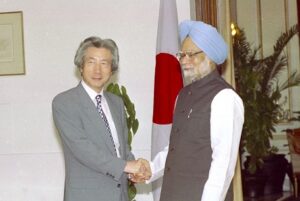



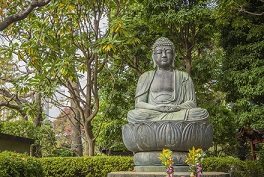



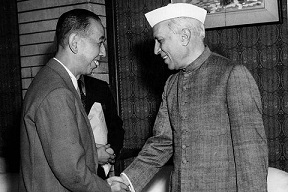






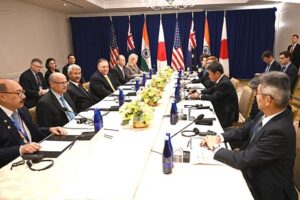









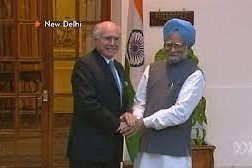









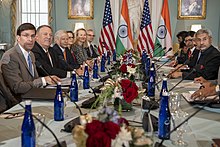


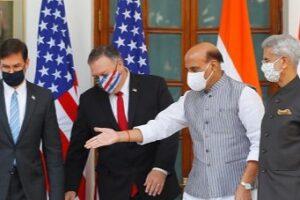
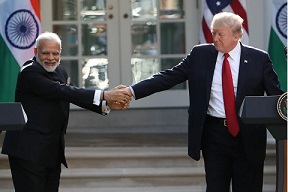
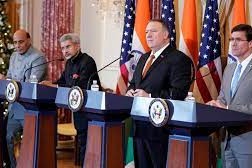

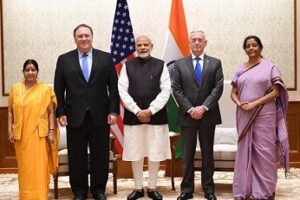

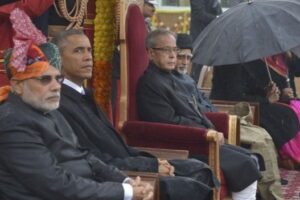

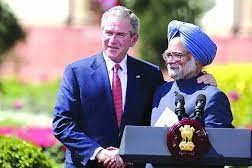
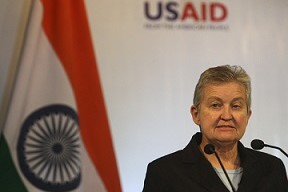
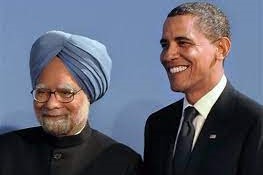

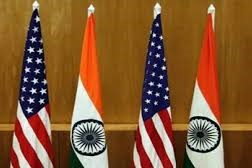
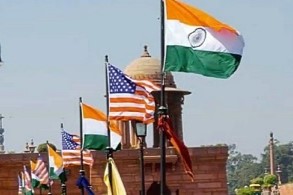
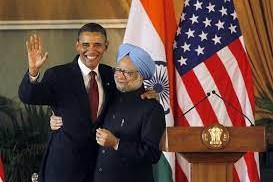



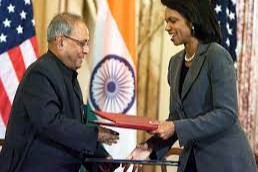

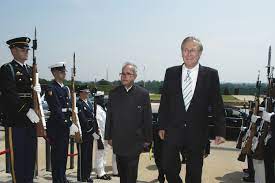


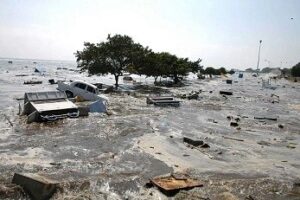




 onducted a total of five underground nuclear tests, breaking a 24-year self-imposed moratorium on nuclear testing. Pakistan followed, claiming 5 tests on May 28, 1998, and an additional test on May 30. The unannounced tests created a global storm of criticism, as well as a serious setback for decades of U.S. nuclear nonproliferation efforts in South Asia. On May 13, 1998, President Clinton imposed economic and military sanctions on India, mandated by Section 102 of the Arms Export Control Act (AECA), and applied the same sanctions to Pakistan on May 30. Some effects of the sanctions on India included: termination of $21 million in FY1998 economic development assistance; postponement of $1.7 billion in lending by the International Financial Institutions (IFI), as supported by the Group of Eight (G-8) leading industrial nations; prohibition on loans or credit from U.S. banks to the government of India; and termination of Foreign Military Sales under the Arms Export Control Act. Humanitarian assistance, food, or other agricultural commodities are excepted from sanctions under the law.
onducted a total of five underground nuclear tests, breaking a 24-year self-imposed moratorium on nuclear testing. Pakistan followed, claiming 5 tests on May 28, 1998, and an additional test on May 30. The unannounced tests created a global storm of criticism, as well as a serious setback for decades of U.S. nuclear nonproliferation efforts in South Asia. On May 13, 1998, President Clinton imposed economic and military sanctions on India, mandated by Section 102 of the Arms Export Control Act (AECA), and applied the same sanctions to Pakistan on May 30. Some effects of the sanctions on India included: termination of $21 million in FY1998 economic development assistance; postponement of $1.7 billion in lending by the International Financial Institutions (IFI), as supported by the Group of Eight (G-8) leading industrial nations; prohibition on loans or credit from U.S. banks to the government of India; and termination of Foreign Military Sales under the Arms Export Control Act. Humanitarian assistance, food, or other agricultural commodities are excepted from sanctions under the law. 





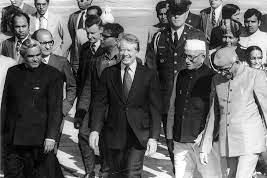





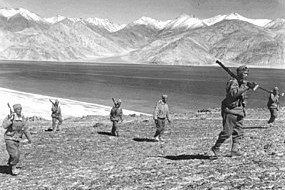




 The first ministerial level meeting of QUAD was held on the sidelines of the United Nations General Assembly in New York. Before this, the QUAD had
The first ministerial level meeting of QUAD was held on the sidelines of the United Nations General Assembly in New York. Before this, the QUAD had AusIndEx is an exercise between India and Australia which was first held in 2015.The Australian
AusIndEx is an exercise between India and Australia which was first held in 2015.The Australian 

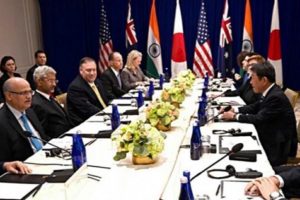





 On recommendations of the Japanese government, the four countries met at Manila, Philippines for ASEAN Regional Forum (ARF) originally, but also ended up having a meeting of what we call the first meeting of four nation states on issues of
On recommendations of the Japanese government, the four countries met at Manila, Philippines for ASEAN Regional Forum (ARF) originally, but also ended up having a meeting of what we call the first meeting of four nation states on issues of  On his official visit to India, Japanese PM Mr. Shinzo Abe reinforced the ties of two nations, i.e., Japan and India with his famous speech about
On his official visit to India, Japanese PM Mr. Shinzo Abe reinforced the ties of two nations, i.e., Japan and India with his famous speech about  In 2007, Japanese President Shinzo Abe resigned from his post citing health reasons. This had a significant impact on QUAD as he was the architect & advocate of QUAD. His successor, Yasuo Fukuda, did not take up QUAD with such zeal leading to dormancy of the forum. (
In 2007, Japanese President Shinzo Abe resigned from his post citing health reasons. This had a significant impact on QUAD as he was the architect & advocate of QUAD. His successor, Yasuo Fukuda, did not take up QUAD with such zeal leading to dormancy of the forum. ( Japan earthquake and tsunami of 2011, also called Great Sendai Earthquake or Great Tōhoku Earthquake, was a 9.0 magnitude earthquake which struck below the floor of the Western Pacific at 2:49 PM. The powerful earthquake affected the northeastern coast of Honshu, Japan’s main island, and also initiated a series of large tsunami waves that devastated coastal areas of Japan, which also led to a major nuclear accident. Japan received aid from India, US, Australia as well as other countries. US Navy aircraft carrier was dispatched to the area and Australia sent search-and-rescue teams.
Japan earthquake and tsunami of 2011, also called Great Sendai Earthquake or Great Tōhoku Earthquake, was a 9.0 magnitude earthquake which struck below the floor of the Western Pacific at 2:49 PM. The powerful earthquake affected the northeastern coast of Honshu, Japan’s main island, and also initiated a series of large tsunami waves that devastated coastal areas of Japan, which also led to a major nuclear accident. Japan received aid from India, US, Australia as well as other countries. US Navy aircraft carrier was dispatched to the area and Australia sent search-and-rescue teams. 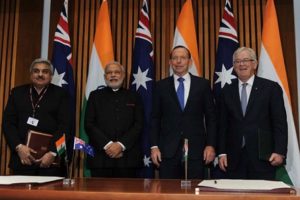 India and Australia signed the
India and Australia signed the 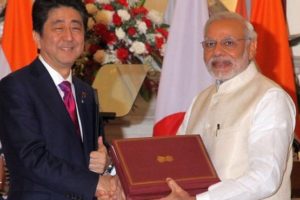 The India-Japan Agreement for Cooperation in the Peaceful Uses of Nuclear Energy was signed on 11 November, 2016 and came into force on 20 July, 2017 which was representative of strengthening ties between India and Japan. Diplomatic notes were exchanged between Dr. S. Jaishankar and H.E. Mr. Kenji Hiramatsu, Ambassador of Japan to India. (
The India-Japan Agreement for Cooperation in the Peaceful Uses of Nuclear Energy was signed on 11 November, 2016 and came into force on 20 July, 2017 which was representative of strengthening ties between India and Japan. Diplomatic notes were exchanged between Dr. S. Jaishankar and H.E. Mr. Kenji Hiramatsu, Ambassador of Japan to India. ( The foreign ministry
The foreign ministry The Officials of QUAD member countries met in Singapore on November 15, 2018 for consultation on regional & global issues of common interest. The main discussion revolved around connectivity, sustainable development, counter-terrorism, maritime and cyber security, with the view to promote peace, stability and prosperity in the
The Officials of QUAD member countries met in Singapore on November 15, 2018 for consultation on regional & global issues of common interest. The main discussion revolved around connectivity, sustainable development, counter-terrorism, maritime and cyber security, with the view to promote peace, stability and prosperity in the  The 23rd edition of trilateral Malabar maritime exercise between India, US and Japan took place on 26 September- 04 October, 2019 off the coast of Japan.
The 23rd edition of trilateral Malabar maritime exercise between India, US and Japan took place on 26 September- 04 October, 2019 off the coast of Japan.  After the first ministerial level meeting of QUAD in September, 2019, the senior officials of US, Japan, India and Australia again met for consultations in Bangkok on the margins of the East Asia Summit. Statements were issued separately by the four countries. Indian Ministry of External Affairs said “In statements issued separately by the four countries, MEA said, “proceeding from the strategic guidance of their Ministers, who met in New York City on the sidelines of the UN General Assembly recently, the officials exchanged views on ongoing and additional practical cooperation in the areas of connectivity and infrastructure development, and security matters, including counterterrorism, cyber and maritime security, with a view to promoting peace, security, stability, prosperity in the Indo-Pacific region.”
After the first ministerial level meeting of QUAD in September, 2019, the senior officials of US, Japan, India and Australia again met for consultations in Bangkok on the margins of the East Asia Summit. Statements were issued separately by the four countries. Indian Ministry of External Affairs said “In statements issued separately by the four countries, MEA said, “proceeding from the strategic guidance of their Ministers, who met in New York City on the sidelines of the UN General Assembly recently, the officials exchanged views on ongoing and additional practical cooperation in the areas of connectivity and infrastructure development, and security matters, including counterterrorism, cyber and maritime security, with a view to promoting peace, security, stability, prosperity in the Indo-Pacific region.” US 2+2 Ministerial Dialogue was held on 18 December, 2019, in Washington DC. Secretary of State Michael R. Pompeo and Secretary of Defense Mark T. Esper will host Indian Minister of External Affairs Dr. S. Jaishankar and Minister of Defense Shri Rajnath Singh. The discussion focussed on deepening bilateral strategic and defense cooperation, exchanging perspectives on global developments, and our shared leadership in the Indo-Pacific region.The two democracies signed the Industrial Security Annex before the 2+2 Dialogue. Assessments of the situation in Afghanistan, Pakistan, Nepal, Sri Lanka, and the Indian Ocean region in general were shared between both countries. (
US 2+2 Ministerial Dialogue was held on 18 December, 2019, in Washington DC. Secretary of State Michael R. Pompeo and Secretary of Defense Mark T. Esper will host Indian Minister of External Affairs Dr. S. Jaishankar and Minister of Defense Shri Rajnath Singh. The discussion focussed on deepening bilateral strategic and defense cooperation, exchanging perspectives on global developments, and our shared leadership in the Indo-Pacific region.The two democracies signed the Industrial Security Annex before the 2+2 Dialogue. Assessments of the situation in Afghanistan, Pakistan, Nepal, Sri Lanka, and the Indian Ocean region in general were shared between both countries. ( The foreign ministers of QUAD continued their discussions from the last ministerial level meeting in 2019, on 6 October, 2020. While there was no joint statement released, all countries issued individual readouts. As per the issue readout by India, the discussion called for a coordinated response to the challenges including financial problems emanating from the pandemic, best practices to combat Covid-19, increasing the resilience of supply chains, and enhancing access to affordable vaccines, medicines and medical equipment. There was also a focus on maintaining stability in the Indo-Pacific region amidst growing tensions. Australian media release mentions “We emphasised that, especially during a pandemic, it was vital that states work to ease tensions and avoid exacerbating long-standing disputes, work to counter disinformation, and refrain from malicious cyberspace activity. Ministers reiterated that states cannot assert maritime claims that are inconsistent with international law, particularly the United Nations Convention on the Law of the Sea (UNCLOS).”
The foreign ministers of QUAD continued their discussions from the last ministerial level meeting in 2019, on 6 October, 2020. While there was no joint statement released, all countries issued individual readouts. As per the issue readout by India, the discussion called for a coordinated response to the challenges including financial problems emanating from the pandemic, best practices to combat Covid-19, increasing the resilience of supply chains, and enhancing access to affordable vaccines, medicines and medical equipment. There was also a focus on maintaining stability in the Indo-Pacific region amidst growing tensions. Australian media release mentions “We emphasised that, especially during a pandemic, it was vital that states work to ease tensions and avoid exacerbating long-standing disputes, work to counter disinformation, and refrain from malicious cyberspace activity. Ministers reiterated that states cannot assert maritime claims that are inconsistent with international law, particularly the United Nations Convention on the Law of the Sea (UNCLOS).” On September 24, President Biden hosted Prime Minister Scott Morrison of Australia, Prime Minister Narendra Modi of India, and Prime Minister Yoshihide Suga of Japan at the White House for the first-ever in-person Leaders’ Summit of the QUAD. The leaders released a Joint Statement which summarised their dialogue and future course of action. The regional security of the Indo-Pacific and strong confidence in the ASEAN remained on the focus along with response to the Pandemic.
On September 24, President Biden hosted Prime Minister Scott Morrison of Australia, Prime Minister Narendra Modi of India, and Prime Minister Yoshihide Suga of Japan at the White House for the first-ever in-person Leaders’ Summit of the QUAD. The leaders released a Joint Statement which summarised their dialogue and future course of action. The regional security of the Indo-Pacific and strong confidence in the ASEAN remained on the focus along with response to the Pandemic.  The QUAD Vaccine Partnership was announced at the first QUAD Summit on 12 March 2021 where QUAD countries agreed to deliver 1.2 billion vaccine doses globally. The aim was to expand and finance vaccine manufacturing and equipping the Indo-Pacific to build resilience against Covid-19. The launch of a senior-level QUAD Vaccine Experts Group, comprised of top scientists and officials from all QUAD member governments was also spearheaded.
The QUAD Vaccine Partnership was announced at the first QUAD Summit on 12 March 2021 where QUAD countries agreed to deliver 1.2 billion vaccine doses globally. The aim was to expand and finance vaccine manufacturing and equipping the Indo-Pacific to build resilience against Covid-19. The launch of a senior-level QUAD Vaccine Experts Group, comprised of top scientists and officials from all QUAD member governments was also spearheaded.  Although the Tsunami Core group had to be disbanded on fulfilment of its purpose, however the quadrilateral template that formed remained intact as a successful scaffolding of four countries, as stated by authors Patrick Gerard Buchan and Benjamin Rimland in their diplomatic brief about QUAD ( you can access the brief at
Although the Tsunami Core group had to be disbanded on fulfilment of its purpose, however the quadrilateral template that formed remained intact as a successful scaffolding of four countries, as stated by authors Patrick Gerard Buchan and Benjamin Rimland in their diplomatic brief about QUAD ( you can access the brief at  Secretary of State Colin Powell stated that the Core Tsunami Group was to be disbanded and folded and clubbed with the broader United Nations led Relief Operations. In a Tsunami Relief Conference in Jakarta, Secretary Powell stated that
Secretary of State Colin Powell stated that the Core Tsunami Group was to be disbanded and folded and clubbed with the broader United Nations led Relief Operations. In a Tsunami Relief Conference in Jakarta, Secretary Powell stated that  Soon after the Earthquake and Tsunami crisis, humanitarian reliefs by countries, viz., US, India, Japan, and Australia started to help the 13 havoc-stricken countries. The US initially promised $ 35 Millions in aid. However, on 29
Soon after the Earthquake and Tsunami crisis, humanitarian reliefs by countries, viz., US, India, Japan, and Australia started to help the 13 havoc-stricken countries. The US initially promised $ 35 Millions in aid. However, on 29 At 7:59AM local time, an earthquake of 9.1 magnitude (undersea) hit the coast of Sumatra, an Indonesian island. As a result of the same, massive waves of Tsunami triggered by the earthquake wreaked havoc for 7 hours across the Indian Ocean and to the coastal areas as far away as East Africa. The infamous Tsunami killed around 225,000 people, with people reporting the height of waves to be as high as 9 metres, i.e., 30 feet. Indonesia, Srilanka, India, Maldives, Thailand sustained horrendously massive damage, with the death toll exceeding 200,000 in Northern Sumatra’s Ache province alone. A great many people, i.e., around tens of thousands were found dead or missing in Srilanka and India, mostly from Andaman and Nicobar Islands of Indian territory. Maldives, being a low-lying country, also reported casualties in hundreds and more, with several non-Asian tourists reported dead or missing who were vacationing. Lack of food, water, medicines burgeoned the numbers of casualties, with the relief workers finding it difficult to reach the remotest areas where roads were destroyed or civil war raged. Long-term environmental damage ensued too, as both natural and man-made resources got demolished and diminished.
At 7:59AM local time, an earthquake of 9.1 magnitude (undersea) hit the coast of Sumatra, an Indonesian island. As a result of the same, massive waves of Tsunami triggered by the earthquake wreaked havoc for 7 hours across the Indian Ocean and to the coastal areas as far away as East Africa. The infamous Tsunami killed around 225,000 people, with people reporting the height of waves to be as high as 9 metres, i.e., 30 feet. Indonesia, Srilanka, India, Maldives, Thailand sustained horrendously massive damage, with the death toll exceeding 200,000 in Northern Sumatra’s Ache province alone. A great many people, i.e., around tens of thousands were found dead or missing in Srilanka and India, mostly from Andaman and Nicobar Islands of Indian territory. Maldives, being a low-lying country, also reported casualties in hundreds and more, with several non-Asian tourists reported dead or missing who were vacationing. Lack of food, water, medicines burgeoned the numbers of casualties, with the relief workers finding it difficult to reach the remotest areas where roads were destroyed or civil war raged. Long-term environmental damage ensued too, as both natural and man-made resources got demolished and diminished.
No responses yet